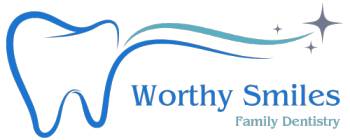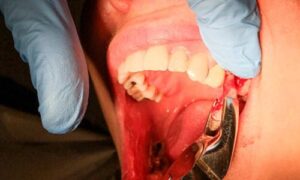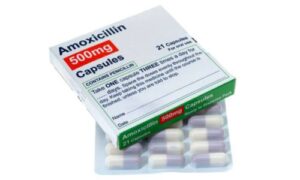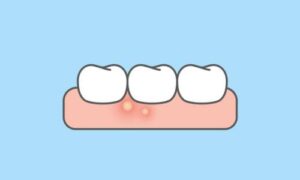Introduction
We’ve all experienced it at some point – that embarrassing moment when you realize your breath isn’t as fresh as it should be. Lousy mouth breath, or halitosis, can be a bothersome issue affecting millions worldwide. Not only does it lead to discomfort and self-consciousness, but it can also be an indicator of underlying oral health problems. This article’ll explore the causes of bad breath and provide practical tips to overcome this common issue.
Common Causes of Bad Breath
Before we delve into the solutions, it’s essential to understand the typical culprits behind bad breath. Poor oral hygiene ranks as one of the primary reasons for halitosis. When we don’t brush and floss regularly, bacteria accumulate in our mouths, leading to foul odors. Additionally, particular food and drink choices, such as onions and coffee, can contribute to temporary bad breath. Smoking and tobacco use, besides being harmful to overall health, are notorious for causing unpleasant mouth odor. Furthermore, some medical conditions and medications can also result in halitosis.
Tips for Maintaining Good Oral Hygiene
To combat lousy breath effectively, start by adopting good oral hygiene practices. Brush your teeth at least twice a day using fluoride toothpaste and a soft-bristled toothbrush. Don’t forget to floss daily to remove food particles and plaque between your teeth. Many people overlook cleaning their tongues, which can harbor bacteria causing bad breath. Using a tongue scraper or brushing your tongue gently can make a significant difference. Incorporating mouthwash into your routine can also help eliminate bacteria and provide a refreshing feeling.
Healthy Dietary Habits to Combat Bad Mouth Breath
Maintaining fresh breath goes beyond just brushing and flossing; it also involves making conscious dietary choices. Your diet can play a significant role in combating bad breath and promoting overall oral health. Here are some healthy nutritional habits that can help keep your breath fresh and pleasant:
1. Stay Hydrated
Drinking adequate water throughout the day is crucial for preventing dry mouth, a common cause of bad breath. When your mouth is dry, saliva production decreases, allowing bacteria to thrive and produce foul odors. Aim to drink at least 8 cups (64 ounces) of water daily to keep your mouth moist and hydrated.
2. Choose Breath-Friendly Foods
Certain foods can naturally help freshen your breath. Foods like apples, carrots, and celery act as natural cleansers for your teeth. Their crisp texture stimulates saliva flow, which washes away bacteria and food particles, leaving your mouth feeling cleaner and smelling better.
3. Avoid Strong Odor-Causing Foods
Some foods, like garlic and onions, are notorious for causing strong odors that linger in your mouth long after consumption. While these foods may offer various health benefits, be mindful of their impact on your breath, especially before social events or meetings. Opt for milder alternatives or use breath mints or sugarless gum to counteract the odor.
4. Embrace Probiotic Foods
Probiotic-rich foods like yogurt and kefir contain beneficial bacteria to help balance the oral microbiome. A balanced oral microbiome contributes to better oral health and can reduce the presence of odor-causing bacteria in the mouth.
5. Limit Sugary Foods and Beverages
Foods and drinks high in sugar can increase bacterial growth in the mouth, contributing to bad breath. Limit your consumption of sugary snacks, sodas, and sweet treats to reduce the risk of bad breath and tooth decay.
6. Incorporate Vitamin C-Rich Foods
Vitamin C-rich foods, such as citrus fruits and berries, can boost saliva production and inhibit the growth of bacteria in the mouth. Including these fruits in your diet can help keep your breath fresher.
7. Quit Smoking and Tobacco Use
Smoking stains your teeth, increases the risk of various health problems and leaves an unpleasant odor in your mouth. Quitting smoking is essential for overall well-being and will significantly improve your breath’s smell. Seek support from friends, family, or professional resources to help you successfully quit smoking.
Identifying and Treating Medical Conditions
If you consistently struggle with bad breath despite good oral hygiene practices, it’s essential to identify and address any underlying medical conditions. Gum disease, for instance, can lead to persistent bad breath, and seeking professional dental treatment can resolve the issue. Dry mouth is another common cause of halitosis, and there are specific products and lifestyle changes that can alleviate the symptoms. In some cases, sinus infections can also contribute to bad breath, and proper medical treatment will be necessary.
The Role of Regular Dental Check-ups
Regular visits to your dentist are crucial in maintaining good oral health and addressing lousy breath concerns. Professional dental cleanings can remove stubborn plaque and tartar, improving your breath’s freshness. Additionally, dentists can identify early signs of dental problems and recommend suitable treatments.
Natural Remedies for Bad Mouth Breath
In addition to conventional methods, several natural remedies can help combat bad breath. Herbs like mint, parsley, and fennel have natural breath-freshening properties. Chewing sugarless gum can also increase saliva production, which helps wash away bacteria and food particles.
The Psychological Impact of Bad Mouth Breath
Dealing with bad breath can take a toll on your confidence and self-esteem. If you’ve experienced social anxiety or hesitancy due to halitosis, remember that you’re not alone. Addressing the issue with proper oral care and seeking professional help can boost your confidence and improve social interactions.
Practical Tips for Fresh Breath All Day
Maintaining fresh breath throughout the day requires some additional steps. Staying hydrated is vital, as drinking water helps rinse away bacteria. Carrying breath-friendly snacks like apples or sugar-free mints can be handy, especially when you’re on the go.
FAQs
Q: What causes morning breath, and how can I prevent it?
A: Morning breath is commonly caused by reduced saliva flow during sleep, allowing bacteria to flourish. To prevent it, maintain good oral hygiene before bed and stay hydrated throughout the day.
Q: Can bad breath be a sign of a severe medical condition?
A: Persistent bad breath may indicate an underlying medical issue, such as gum disease or sinus infections. Consult a healthcare professional if regular oral care doesn’t improve the condition.
Q: How often should I visit the dentist to maintain fresh breath?
A: It is recommended to visit the dentist every six months for regular check-ups and cleanings to ensure optimal oral health and fresh breath.
Q: Are breath mints and chewing gum effective in combating lousy mouth breath?
A: Sugarless breath mints and gum can help increase saliva flow, which washes away bacteria and odors. However, they are temporary solutions and not substitutes for proper oral care.
Q: What role does saliva play in preventing bad mouth breath?
A: Saliva plays a vital role in washing away food particles and bacteria in the mouth, helping to maintain fresh breath. A dry mouth can lead to bad breath, so staying hydrated is essential.














